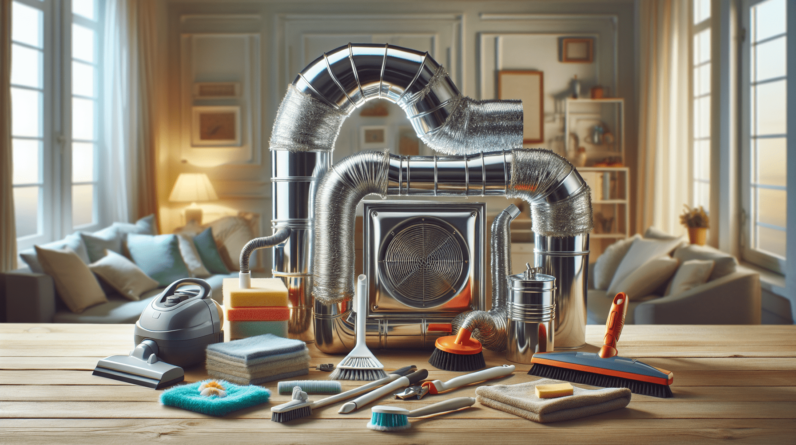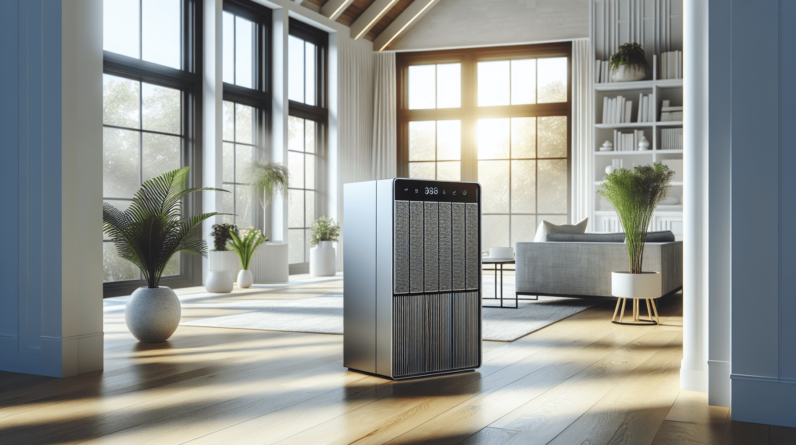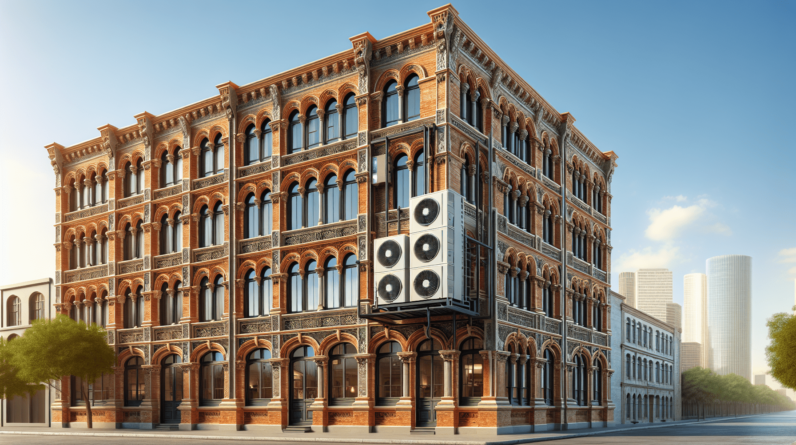
Have you ever been on a camping trip, only to be overwhelmed by the sweltering heat during the day? You’re not alone. The peace and beauty of nature can sometimes be overshadowed by uncomfortable temperatures, especially inside your camper. So, what’s the best way to stay cool and comfortable while enjoying the great outdoors?

Importance of Air Conditioning in Campers
You might be wondering why you should even consider an air conditioning unit for your camper. The truth is that having a comfortable space can make a significant difference in your camping experience. When temperatures soar, staying cool becomes a priority, and an air conditioning unit can help you enjoy your time away from home without feeling stifled by the heat.
Benefits of Using an Air Conditioner in Your Camper
When you incorporate an air conditioning unit into your camper setup, several benefits emerge:
-
Comfortable Living Space: An air conditioner ensures you don’t have to suffer through sweaty nights or uncomfortable afternoons. Instead, you can enjoy a nice, cool environment.
-
Better Sleep: Good rest is essential during camping trips, and sleeping in a cooled environment can contribute to better quality sleep.
-
Air Quality Control: Air conditioning units often come with filters that can help remove dust and allergens from the air, enhancing your overall comfort.
-
Increased Enjoyment: With a comfortable temperature, you’re more likely to enjoy your time spent indoors, whether reading a book or playing games with family.
Types of Air Conditioning Units for Campers
Now that you understand the importance of staying cool, let’s explore the types of air conditioning units available for campers. Different options cater to various needs, circumstances, and budgets.
Rooftop Air Conditioners
Rooftop air conditioners are a popular choice for larger campers or RVs.
- Pros: These units are efficient, don’t take up interior space, and usually have a robust cooling capacity.
- Cons: Installation can be complex, requiring roof modifications, and they may be more expensive.
Portable Air Conditioners
If you’re looking for something that can be easily set up and moved, consider a portable air conditioner.
- Pros: Easy to install and operate, portable air conditioners can be moved to different areas of your camper.
- Cons: Limited cooling capacity and may require venting options, which can be cumbersome.
Window Air Conditioners
Another viable option is a window air conditioning unit. This type can be convenient if your camper has a window that can be secured safely.
- Pros: They generally offer good cooling power and are often less expensive than rooftop units.
- Cons: Takes up window space, which may limit natural light, and proper install is crucial to avoid issues.
Swamp Coolers
Swamp coolers, or evaporative coolers, can also be an alternative if you’re camping in dry climates.
- Pros: They use water to cool the air and often consume less electricity, making them suitable for periods without a power supply.
- Cons: Their efficiency is significantly reduced in high humidity, so they are not ideal for wet climates.
Ductless Mini-Split Systems
For those who want a more permanent solution in larger campers, ductless mini-split systems can provide both heating and cooling.
- Pros: They are quiet, efficient, and great for maintaining a consistent temperature.
- Cons: Installation can be expensive and may not be practical for small campers.
Considerations When Choosing an Air Conditioner for Your Camper
Selecting the right air conditioning unit is essential for maximizing your comfort. Here are some factors to think about before making your choice.
Size of Your Camper
The camper’s size will heavily influence the type of air conditioning unit you need.
- Small Campers: For smaller spaces, a portable air conditioner may suffice.
- Medium to Large Campers: You might opt for a rooftop unit or ductless mini-split system to ensure sufficient cooling.
Energy Source
Determining how you’ll power your air conditioning unit is crucial.
- Electricity: Most air conditioning units require a consistent power supply; consider whether you will be at campsites with electrical hookups.
- Generator: If you choose a unit requiring more power, having a generator can be necessary.
Budget
Cost is always a consideration. Generally, rooftop units tend to be more pricey than portable or window units, so be sure to factor in installation and ongoing energy costs.
Noise Level
Nobody likes a noisy air conditioner when they’re trying to unwind. Consider units that operate quietly, especially if you plan on using it for extended periods.
Installation Complexity
Some air conditioner units require professional installation, while others can be set up with minimal effort. Weigh your options based on your skill level and the tools available to you.
How to Install an Air Conditioner Unit in Your Camper
Once you’ve chosen the right air conditioning unit, it’s time to install it. Here’s a general overview of the installation process for some popular types.
Installing Rooftop Air Conditioners
-
Select a Location: Most rooftops might already have a pre-cut space for an A/C unit. If it’s your first install, choose a flat surface to ensure airflow.
-
Prepare the Area: Clean the area and ensure there’s no debris in the way.
-
Securely Mount the Unit: Follow manufacturer instructions carefully to mount and seal the unit to prevent leaks.
-
Connect the Wiring: This may be best left to professionals unless you’re familiar with wiring systems safely.
Installing Portable Air Conditioners
-
Choose a Spot: Locate a space with proximity to a power source. Ideally, it should be near a window too for venting.
-
Setup the Venting: Most portable units come with venting kits. Attach them according to the guidelines provided.
-
Plug It In: Simply connect the unit to a power source and enjoy chilly air.
Installing Window Air Conditioners
-
Measure the Window: Ensure your chosen unit fits the dimensions of the window.
-
Install Support Brackets: Follow the support instructions to avoid mishaps.
-
Seal Openings: Use foam or insulation material to fill gaps so that air doesn’t escape.
-
Connect Power: Ensure the unit is securely plugged in before powering it on.

Maintenance Tips for Your Camper’s Air Conditioner Unit
You wouldn’t want your cooling system to fail during a hot summer day, right? Regular maintenance is key. Here are some helpful tips:
Clean or Replace Filters Regularly
Air filters can become clogged with dust and debris over time, reducing efficiency. Check your filters monthly.
- Cleaning: You can vacuum clean the filter or wash it with soap and water, allowing it to dry completely before reinstalling.
- Replacing: If your filters are damaged or heavily stained, consider replacing them as recommended by the manufacturer.
Inspect the Drainage System
Proper drainage is essential to keep humidity levels low.
- Check for Clogs: Ensure the drainage line is clear by flushing it periodically with water.
- Watch for Leaks: Inspect for leaks and repair them immediately to prevent water damage.
Clear the Area Around the Unit
Keep the area surrounding the unit free of debris, leaves, or other obstructions that could hinder airflow.
Schedule Professional Maintenance
For rooftop or complex units, consider scheduling a yearly check-up with a professional service. They can assess components you might not easily access.
Troubleshooting Common Air Conditioning Problems
Even the best units can run into issues. It helps to know how to troubleshoot some common problems.
Unit Won’t Turn On
- Check the Power Source: Ensure it’s plugged in and that the power outlet works.
- Inspect Circuit Breakers: Reset any tripped breakers to restore power.
Poor Cooling Performance
- Dirty Filters: Clogged filters can impede airflow. Clean or replace them.
- Low Refrigerant Levels: You may need a professional to check and refill refrigerant.
Strange Noises
- Loose Parts: Listen for rattles or banging; these may indicate loose components needing tightening.
- Blocked Fans: Ensure that fans are unobstructed and spinning smoothly.
Water Leaks
- Condensation vs. System Failures: Little water can indicate normal condensation issues, while larger leaks may suggest drainage or seal failure.
Conclusion
Staying cool while enjoying your camping experience is entirely possible with the right air conditioning unit for your camper. By selecting the best type of system for your needs, understanding how to install and maintain it, and having a plan for troubleshooting, you can ensure that you stay comfortable and relaxed throughout your trips.
So, the next time the heat cranks up, you’ll be ready to escape the summer blaze with an oasis of cool air in your camper! Happy camping!








